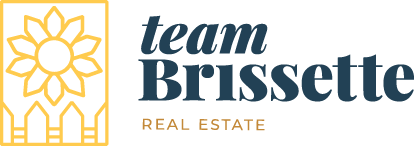Buying a home is one of the most significant financial decisions you’ll ever make, and budgeting for it is crucial. If you’re planning to buy a home in Ottawa, having a clear and realistic budget can help you make informed decisions and avoid unexpected financial stress. A well-thought-out budget will not only cover the purchase price but also all the additional costs that come with buying a home.
Before you start house hunting, it’s important to assess your current financial situation. Knowing your income, expenses, and debts will give you a clearer picture of what you can afford. This step is essential in setting a realistic budget and ensuring you don’t overextend yourself financially.
Once you have a grasp of your financial standing, it’s time to dive into the various costs involved in buying a home. Understanding these costs, from the down payment to closing fees, will prepare you for what’s ahead. Additionally, planning and saving for your down payment is a critical part of the budget. This involves setting savings goals and exploring options for financial assistance.
Finally, utilizing financial tools and seeking professional advice can further refine your budget and offer valuable insights. Mortgage calculators, budgeting apps, and consultations with real estate agents or financial advisors can all play a role in creating a budget that works for you.
Assessing Your Financial Situation
Before diving into the home-buying process, it’s crucial to assess your financial situation. Start by listing all your sources of income. This includes your salary, bonuses, and any other regular earnings. Understanding your monthly income will provide a foundation for budgeting.
Next, tally up your monthly expenses. Include major bills like rent, utilities, groceries, and transportation costs. Don’t forget to account for smaller expenses like dining out or subscriptions. This step helps you identify areas where you might cut back to save for your new home.
Finally, evaluate your debts. This includes student loans, car payments, and credit card balances. Knowing your debt load is essential because it affects your credit score and your ability to qualify for a mortgage. Your credit score will influence the interest rate you’re offered on your mortgage, so it’s worth ensuring it’s as strong as possible.
Understanding the Costs Involved in Buying a Home
Buying a home involves more than just the purchase price. It’s important to understand all the costs involved so you can budget accordingly. Here are some key costs to consider:
- Down Payment: This is the initial, lump-sum payment you make when purchasing a home. In Canada, the minimum down payment ranges from 5% to 20% of the home’s purchase price, depending on the cost of the property.
- Mortgage Insurance: If your down payment is less than 20%, you’ll need mortgage insurance. This protects the lender if you default on the loan. Mortgage insurance premiums can range from 0.6% to 4% of the total loan amount.
- Closing Costs: These are fees paid at the closing of a real estate transaction. Typical closing costs include legal fees, title insurance, and land transfer taxes. Expect these costs to be about 1.5% to 4% of the purchase price.
- Home Inspection and Appraisal Fees: Before completing your purchase, you’ll likely need a home inspection to assess the property’s condition and an appraisal to determine its value. These fees can add up, but they are crucial for making an informed buying decision.
- Moving Costs: Don’t forget to budget for moving expenses. This can include hiring movers, renting a moving truck, or purchasing packing supplies. These costs can vary greatly depending on the distance and amount of belongings.
Understanding these costs will help you set a realistic budget and ensure you’re financially prepared for homeownership.
Saving and Planning for Your Down Payment
Saving for a down payment is one of the most important steps in the home-buying journey. It requires careful planning and disciplined savings habits. Here’s how you can get started:
- Set a Savings Goal: Determine how much you need for your down payment. Remember, the minimum down payment in Canada is 5% to 20% of the home’s purchase price. Setting a clear goal will give you a target to work towards.
- Automate Your Savings: Set up automatic transfers to a dedicated savings account. This ensures you consistently save a portion of your income without having to think about it. Even small, regular contributions add up over time.
- Reduce Unnecessary Expenses: Review your budget to identify areas where you can cut back. This might include dining out less, cancelling unused subscriptions, or shopping for discounts. Redirect the money saved towards your down payment fund.
- Explore Financial Assistance: Look into financial assistance programs for first-time homebuyers. The federal government offers incentives like the First-Time Home Buyer Incentive, which can help make homeownership more affordable.
- Boost Your Income: Consider ways to increase your income, such as taking on a part-time job or freelance work. Use any extra earnings to strengthen your savings.
Utilizing Financial Tools and Professional Advice
Making informed decisions about buying a home can be easier with the right tools and guidance. Here’s how to utilize financial tools and seek professional advice effectively:
- Mortgage Calculators: Use online mortgage calculators to estimate your monthly payments based on different loan amounts and interest rates. This can help you understand what you can afford and plan your budget accordingly.
- Budgeting Apps: Leverage budgeting apps to track your spending and savings. These tools can provide a clear picture of your financial health and help you stay on course with your savings goals.
- Consult a Financial Advisor: A financial advisor can offer personalized advice based on your financial situation. They can help you create a savings plan, understand tax implications, and recommend the best mortgage options.
- Seek Real Estate Advice: Speak with a real estate agent to get insights into the Ottawa housing market. They can provide valuable information on property values, neighbourhoods, and the buying process. Their expertise can help you make informed choices and avoid common pitfalls.
- Review Lending Options: Explore different mortgage providers and loan options. Comparing rates and terms from various lenders can help you find the best deal. Don’t hesitate to negotiate with lenders for better terms.
Conclusion
Budgeting for buying a home in Ottawa involves several critical steps, from assessing your financial situation to understanding the full range of costs involved. By saving diligently for your down payment and leveraging financial tools and professional advice, you can make informed decisions and reduce the stress associated with buying a home.
A well-planned budget not only helps you determine what you can afford but also ensures you’re prepared for all the additional expenses that come with homeownership. Taking these steps seriously will put you in a strong position to purchase your dream home in Ottawa.
Ready to take the next step in your home-buying journey? Contact Team Brissette for expert real estate guidance tailored to your specific needs. Let’s work together to find the best homes for sale in Ottawa, Canada!





